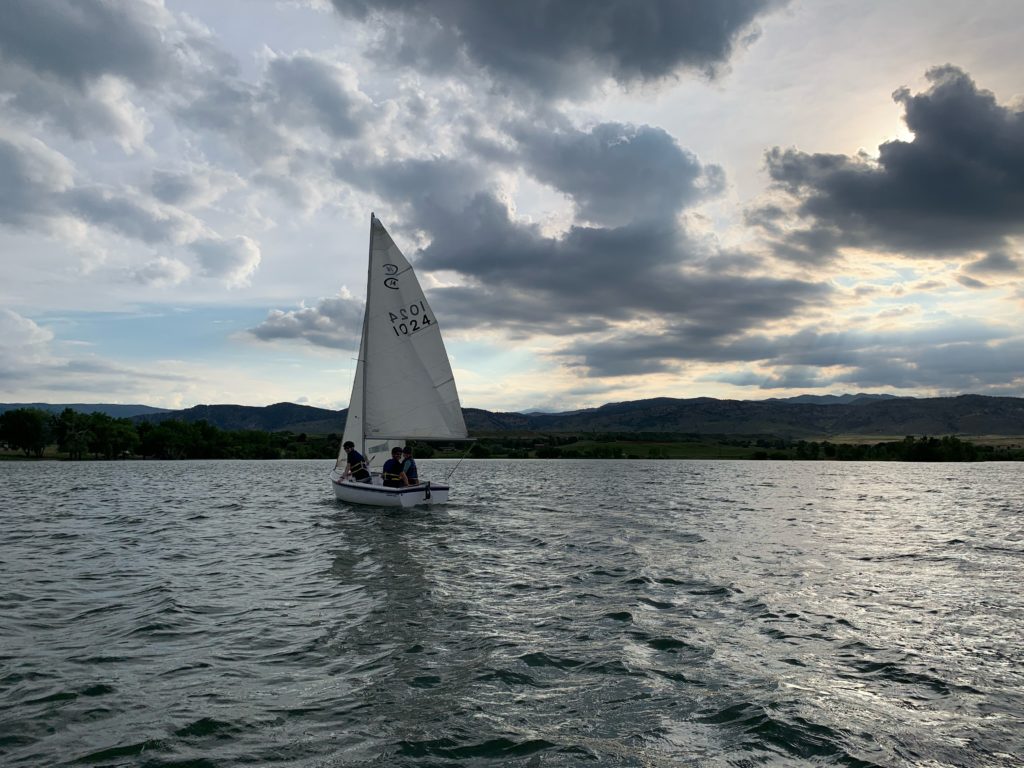Spending Time in Blue Spaces: Enjoying Nature at Its Best
As we begin to emerge from the isolation and endless Zoom meetings of the past year, cautiously dipping our toes into the world again, many people are starting to realize that connecting with nature is a great way to recalibrate. Research confirms that nature provides a wonderful refuge from stress, and spending time on the water is one of the best options. So break out your deck shoes, don a life jacket, and head for the water!
You may already intuitively know that being close to water can induce feelings of calm. For centuries, poets and artists have celebrated the sense of awe and magic that water can evoke. But can spending time on, in, or close to water deliver the same wide-ranging benefits that urban green infrastructure brings to mental health?
Decades of research line the shelves of higher institutions and reference libraries on the many beneficial effects of spending time in nature. A walk in the park or even just looking out a window at some trees can provide multiple health benefits, including decreasing blood pressure, lowering anxiety, improving moods, and even helping with cognitive function.
It turns out, studies have shown that bodies of water, or “blue spaces,” score just as well—if not better—in supporting psychological well-being as “green” nature. In addition, the research found that proximity to water is associated with many positive physical and mental well-being measures, from higher vitamin D levels to better social relations.
Breathing in the sea air, strolling along a river, or simply sitting beside a pond have long been considered good for our well-being. Still, there’s emerging evidence that “blue space” may have a more profound impact on our bodies and brains than other outdoor environments do.

Water Environments Make Us Happy
An extensive 2013 study found that people are happier in natural environments. As part of the study, 20,000 smartphone users recorded their sense of wellbeing and their immediate environment at random intervals. Participants scored marine and coastal margins as the happiest locations. In addition, researchers list three main reasons why water is positively related to health, wellbeing, and happiness.
- There are beneficial environmental factors typically found in aquatic environments, such as less polluted air and more sunlight.
- People who live by water tend to be more physically active in water sports and other physical activities.
- Finally (and this is where blue space seems to have the edge over other natural environments), water has a psychologically recuperative effect. Spending time in and around water environments has consistently led to significantly more increases in inducing positive moods and reducing negative moods and stress than green space does.
What Makes Us Connect with Water?
The human connection with water is complex and rooted in evolution, biology, neuroscience, and concepts such as “flow”—a state in which people are so immersed in an activity that nothing else seems to matter. Researchers believe that there are essentially four blue space triggers that activate our parasympathetic nervous system, which controls body function while at rest.
- First, water instills a sense of being away from the daily grind. The feeling can be either tranquil (think sailing) or dynamic (think white water rafting) conditions that can make a person introspective or attuned to their surroundings, both of which serve as escapes from habitual behavior.
- Second, it conjures a feeling of “extent,” of being in a boundless environment (especially large bodies of water) where possibilities feel limitless. While the same could be said from, say, hiking, those feelings are amplified in blue space by acts like looking to the horizon or into the depths of a lake.
- Third, the sounds and sights of water—babbling brooks, crashing waves, or sparkling lake waters—spark both “hard fascination,” a concentration of our focus through stimulation, and “soft fascination,” an unconscious capturing of our attention that requires little effort and frees the mind.
- And, fourth, water provides a sense of compatibility with our location, of comfort and belonging.
Still, other scientists point to a phenomenon called biophilia, the idea that our intimate relationship with the natural world is embedded in genetics. The theory is that time in nature puts us in contact with vital microbes we had been exposed to throughout human existence—until we began living in more sterile and urban environments. So, for example, when people are near waves or waterfalls, they may be getting showered by microbiota that boosts their immune systems. There’s no actual scientific evidence of this, but they’re working on it.
And while there are multiple ways to spend time on or near the water—even time spent near a fountain offers some restorative properties—sailing or paddleboarding may offer a powerful connection because it also involves understanding the motion of the wind and the movement of the water.
A relaxing day on the water….sounds enticing, doesn’t it? There’s no question that the past year has been challenging, and we would all benefit from a stress-free experience. So, find a sailing experience and enjoy some of those tremendous benefits of spending time on the water.




